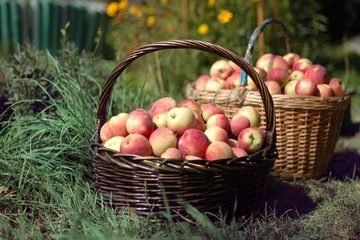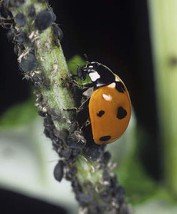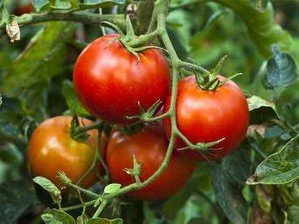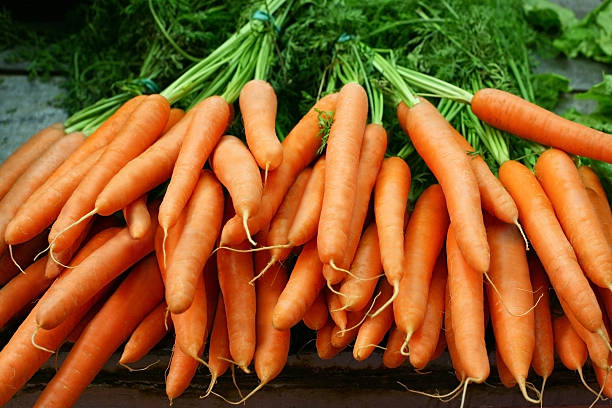Amateur Organic Gardener
"Are you
worried about the type of food you are eating and how it is being
produced?"

Welcome to amateur-organic-gardener.com. Are you worried about the type of food you are eating and how its being produced? If so, you are now on your way to a healthier lifestyle by learning how to become an amateur organic gardener and by growing your own organic fruits and vegetables you will know exactly what you are eating.
Like most people I believe in healthy living, eating food that are not genetically modified or laden with pesticide or chemicals that make them bigger, grown to specific shapes and size with longer shelf life and what this is doing to our health.
With this in mind people are becoming more aware of the harmful effect on our bodies and turning towards an organic way of living. Organic food of course is not a new concept. Generation gone by had to grow food organically to survive but they were also benefiting from having fresh produce minus chemical and pesticide.
Organic method of farming changed after World War two, when it was found that more food could be produced with little effort by using chemicals, pesticide and fertilisers.People took advantage of this non-organic way of farming and started reaping the benefit of more food supply, and after the period of rationing due World War two this was a welcome bonus.
However, the downside of this was that pests grew stronger and became resistant to the pesticides. In order to combat this, stronger chemicals were use to address the problem but with detrimental effect on people’s health. It has been said that eating organic food with a diet that consists of fruits and vegetables and white meal, people are less likely to develop cancer.
What Defines Organic Food?

According to Wikipedia, organic horticulture is the science and art of growing fruits , vegetables, flowers or ornamental plants by following the essential principals of organic agriculture in soil building and conservation, pest management and heirloom variety. Organic gardening is designed to work with the ecological systems and minimally disturb the Earth's natural balance . Because of this organic farmers have been interested in reduced-tillage methods. Conventional agriculture uses mechanical tillage which is ploughing or sowing, which is harmful to the environment.
Organic farmers use techniques such as mulching, planting cover crops, and inter-cropping, to maintain a soil cover throughout most of the year. The use of compost, manure mulch and other organic fertilisers yields a higher organic content of soils on organic farms and helps limit soil degradation and erosion. https://en.wikipedia.org/wiki/Organic_farming
So one could say the definition of organic gardening is to allow things to grow in their natural environment with little interference. To grow food or flowers without using harmful chemicals or substances and to use alternative natural ways to get a natural crop.
Organic gardeners like me, will use sunlight, hot water and try to attract certain birds and insects such as ladybugs to protect crops but also as a way of getting rid of pest without harming the plants. If we need to use any form of pesticide it will be ones that only harm the pests. We will only use organic biodegradable fertiliser made from fresh weed, fresh garden clipping, food waste and dried leaves helps to increase soil nutrient.
What are the Benefits of going Organic ?

Having used both organic and non-organic fruits and vegetables I can say the organic ones tastes much fresher with better flavour than non-organic. I am also worried that genetically modified food which (was first introduced in 1990s ) we are eating and are created by the introduction of unrelated species whether they are plant base or not and the impact this is having on my health.
Now that I am an amateur
organic gardener I am now more certain of the benefits or eating
organically. Studies have found that organic fruits and vegetables has more vitamin C than
non-organic. They also contain more nutritious and a high level of antioxidants
which is said to be beneficial in fighting some illnesses.
Not only is organic food better for human health and well-being it is also beneficial for insects and water supply. Organic gardening protects insects such as bees and wasps who helps with the transferring of pollination from one plant to the next, which encouraged fertilisation and production of seeds and fruits. Water pollution was found to be less likely to be polluted with pesticides.
Another benefit of growing your own is that it is cheaper compared to the prices you pay in supermarkets and you know it is organic as well as the pleasure of knowing the end results are from your own labour and tastes better than conventionally grown fruits and vegetable.
How I became an amateur Organic Gardener ?

Practice, practice, trial and errors and a real love of gardening. I am always amazed at the wonders of nature, how sowing a small seed can produce a cascade of strawberries, tomatoes, corns, pumpkins, cucumber and many more. How different plants will appear dead in the winter yet comes to life in the spring and summer.
Initially I started off planting small fruits and vegetables, such as tomatoes, cucumber, strawberries, herbs and bedding plants. I had to learn about the different type of soils, crop rotation, which month to start sowing seeds and when to plant out each plant in the garden or when to transfer plants to larger pots. I also had to learn about the type of organic fertilisers I could use when and how much water is needed for each plant.
I also got to know what to use for pests control without resorting to pesticide and has I mentioned above it took practice and patience but I never got disheartened if any of my vegetables or fruits did not grow or produced any crop as planned. I just learnt what not to do next time and got total pleasure when I achieved success over the years.
I would advise you not to be discouraged from gardening due to lack of space or the belief that you won’t be any good at it. Organic gardening can be done either on a large scale such as renting a community allotment, or small scale in your own back gardens, window boxes and patio tubs depending the type of plants.
If you can afford to rent a Community allotment this of course is of benefit to the community and the environment, bringing the neighbourhood together in support of the need for toxin free food and as well as perhaps selling your own produce. Many people like me also find gardening to be very therapeutic after a busy day at work.
Are you ready to become an amateur organic gardener? I do hope so. Take the time to look around my website and let me share my experience of being an amateur organic gardener with you and helping you to decide:
- How to choose you organic garden site.
- Plan and prepare for your organic garden.
- Getting to know the type of soil you have before you start your organic garden.
- Understanding the different climate and how it affect the type of plant you grow in your organic garden.
- Understanding crop rotation for your organic garden.
- Types of organic fertilisers to improve your soil so getting the best from your organic garden.
- Weed and pest control in order to protect your organic plants and more.
- So please look around checking out the relevant links on this site and start your journey to becoming an amateur organic gardener and your road to good health and well-being.